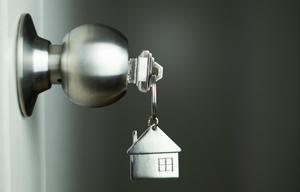Did you know that changes in temperature can have a profound effect on the operation of metal-based locks? This is mainly due to the expansion and contraction of the metal during periods of heating and cooling, and we look at this in a little more detail below:
How can hot weather affect locks?
During a period of intense heat, doors often expand and locks become harder to turn as a result; in some cases, it can make the lock stick completely. This problem is most commonly experienced with closed deadbolt locks that are compressed within the frame of the door as it swells in the heat, or with wooden doors and frames that expand and contract as the temperature changes.
How can cold weather affect locks?
In the opposite way to hot weather, cold weather makes doors and frames contract, and this is commonly a problem with wooden doors and frames. When a wooden door or its frame contracts in such a way, it often makes it harder to turn the key in the deadbolt, but pulling on the handle from outside to recenter the lock within the doorframe, often resolves this.
Can temperature changes affect car locks?
Cold weather can cause problems with car locks, too, especially when any moisture inside the lock freezes when the temperature falls, making it impossible to turn the lock to operate the car. Under these circumstances, you can try heating up the car key with an open flame before placing it inside the lock – but do exercise caution when doing this. For a car with a remote option, you can try heating it up by letting the engine run for a few minutes to try and unfreeze the lock.
What can you do to prevent lock problems due to temperature changes?
Probably the most effective way to avoid such issues is by having a professional locksmith install your locks (although naturally, this doesn’t apply to car locks). With their expertise and training, they’ll make sure each lock is fitted snugly and matched perfectly to the door frame to counteract any issues as the weather changes.
You can also consider swapping wooden exterior doors and frames with other, more durable options, such as fiberglass, steel and aluminum, that are more resistant to changes in temperature.
Lubricate your locks on a regular basis, too, and wherever possible, keep them dry.
If you’re experiencing problems with your locks that may be caused by changing temperatures, consult with a local, licensed locksmith and see if there are any maintenance measures you can take to mitigate the problem, or find out whether replacing your doors and/or locks might work.



